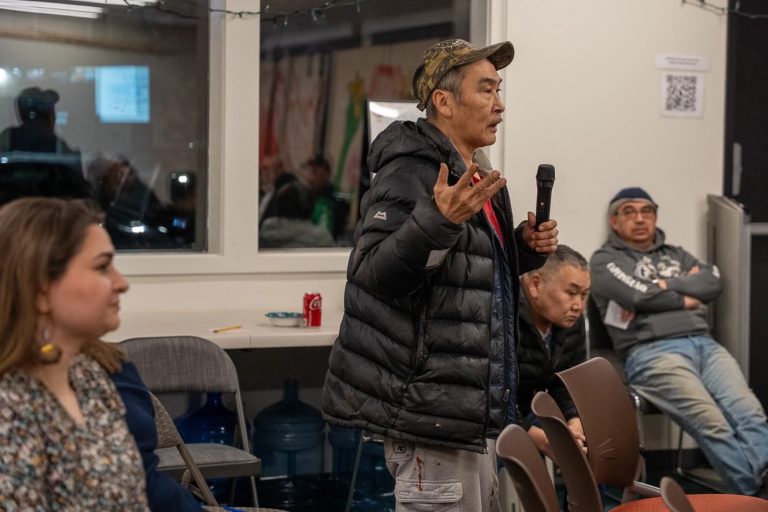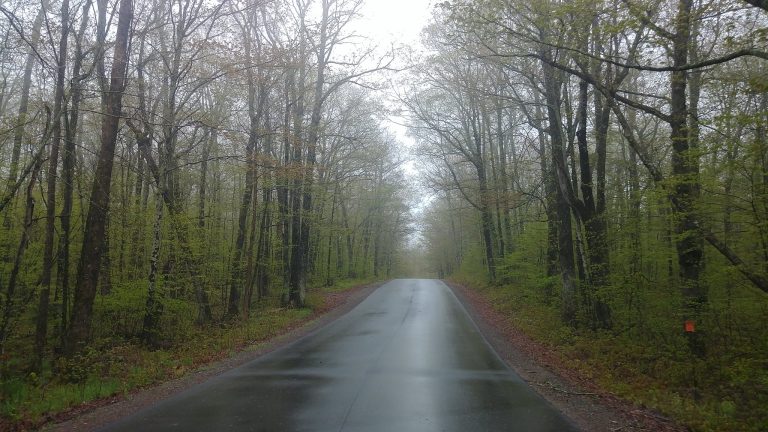Podcast: Play in new window | Download | Embed
The U.S. Congress is considering a rescission request from the Trump administration to pull funding for the Corporation for Public Broadcasting (CPB).
As SDPB’s Lee Strubinger reports, the maneuver would negatively affect many tribal radio stations, including four in South Dakota.
The station KOYA stands to lose about $200,000 if congress ultimately approves the rescission.
John Miller is the station manager for the station in Rosebud. He says the funding reduction would be very detrimental.
“For the folks of the Rosebud. Because, we serve a purpose of keeping them up to date and passing along emergency information—passing along pertinent information that helps them in every way and every day. [CPB] funding that we do receive is very beneficial in keeping the station on the air. It wouldn’t be a good outcome for us.”
KILI of Porcupine, KDKO of Lake Andes, and KLND of McLaughlin all stand to loose around $200,000 in CPB grants.
South Dakota’s lone representative in the U.S. House, U.S. Rep. Dusty Johnson (R-SD), voted in favor of rescinding the money.
U.S. Sen. Mike Rounds (R-SD) says he does not want to see funding cut for radio stations in rural areas that rely on public broadcasting — particularly on reservations.
“Let’s not cut the stuff where we really do need to be able to help some folks that are in some rural areas, and on the reservations, where they simply don’t have other resources available to keep those radios in operation.”
Rounds says his recission decision will be based on whether the package can be amended to allow for funding to continue to reach rural radio stations.
The question now heads to the U.S. Senate.
 Grassroots organizers gathered Thursday in Montana’s largest city for a conference focused on combating the Missing and Murdered Indigenous People (MMIP) crisis.
Grassroots organizers gathered Thursday in Montana’s largest city for a conference focused on combating the Missing and Murdered Indigenous People (MMIP) crisis.
Jackie Coffin reports from Billings.
Montana is home to 12 tribal nations and about 7% of the state’s population is Native American.
But looking at Montana’s current missing persons database, Native Americans are disproportionately represented, making up about 25% of missing persons cases.
Lita Pepion, co-founder of the Billings-based Warrior Women for Justice, says she’s tired of waiting for state and federal resources to make a dent in the problem.
“We hear people all the time who go, ‘what’s the council doing?’ ‘What’s the cops doing?’ ‘What’s everybody doing?’ ‘What are we doing?’ Because it’s not just their problem, it’s our problem as well.”
Pepion helped organize the two-day MMIP conference to share stories and strategies for searching for missing loved ones, advocating for their cases, and how to heal from the grief that comes with losing family members.
“Part of the problem with that addressing that is that we’ve been under or in a state of trauma for so long that we just carry grief after grief, after grief for centuries.”
Charlene Sleeper runs MMIP Billings, a grassroots advocacy program that develops research methods, trainings, and communication strategies for missing persons cases in Montana.
A presenter at the conference, she feels the state-led effort in combating MMIP has stagnated.
“So when it comes to sovereignty and self-determination, I feel like if we, as Indigenous women, take the initiative to create our own solutions in a way that benefits our specific communities that we come from, they’ll be far more effective and impactful.”
Pepion says Warrior Women for Justice will hold future events centered around MMIP throughout the summer and fall.
Get National Native News delivered to your inbox daily. Sign up for our daily newsletter today.



